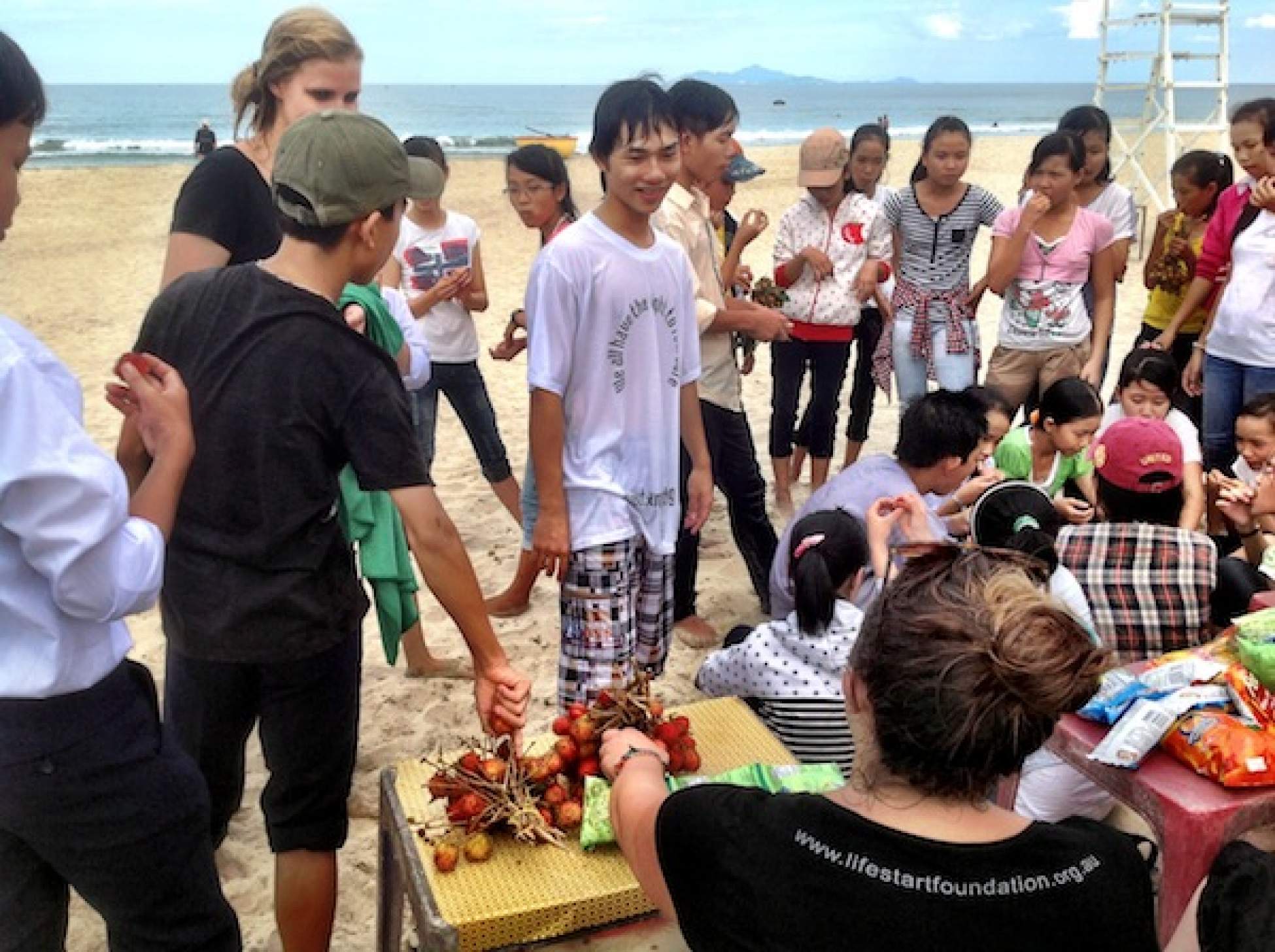For many, the majority of our formative years are spent sitting behind a desk, wavering between paying attention and doodling in the margins of our spiral notebooks. This indecision lasted even longer for me, but transitioned into the undeniable need to escape the confines of a classroom, and the somewhat crippling fear that growing up had to come alongside it.
Luckily, I was able to postpone the real world for a little bit longer and complete my postgraduate education in International Project Management. The program allowed me to meet a group of 75 other people that were passionate about working to create sustainable, positive change throughout the world. Together, we learned about developing project proposals, writing lengthy grant applications, following Sphere Standards for Humanitarian Assistance, and the various methods of evaluating a project. And so, for eight wonderful, stressful months, I was able to prolong the idea of finishing school forever, of embarking on my own and putting my learned skills to use.
Yet, here I am. At a certain point you have to take that first leap, to admit to yourself that you are ready. “Come what may”, “you’ll either sink or swim”; “the world is your oyster”, and a whole myriad of clichés that let you know that you’ve learned all you can in the classroom. At some point, you have to take off your water wings and jump, headfirst, into the unknown.
For me, the unknown is a quaint, beautiful town in the Quang Nam province of Vietnam. For tourists and backpackers alike, the town of Hoi An is defined by its historical Old Town. The area, which is a UNESCO World Heritage site, is painted with intricate silk lanterns, as many tailors as there are tourists, and lovely women donning conical hats and selling fresh fruit from their baskets.
For a volunteer or development worker, Hoi An is an area which has recently felt the growing success of a tourism industry. Unfortunately, the benefits of this have not reached all and many remain below the poverty line. The choice to apply and then accept this position was obvious; I’d never travelled to Southeast Asia, and was always intrigued by the natural beauty and cultures. Fast-forward two months, and I am already inching closer to completing one-third of my placement. I am currently working as the Social Media and Development Officer for the Lifestart Foundation, a position that has transitioned to be more than managing Facebook and Twitter accounts. I now get to experience key moments with beneficiaries, conduct interviews, take photos and work on press releases for the organization.
It can be difficult to find a sense of permanence in a town which relies so heavily on foreign backpackers often staying for no more than two or three days. The first week upon my arrival to Hoi An, I was intrigued and delighted by the many offers received in a five-minute walk in the old town: the street vendors selling delicious fresh fruit, the cyclo drivers offering a lift around the streets, the clothing and shoe makers asking to take a look at their marvelous designs. Unfortunately, by the third week, the novelty began to wear off. I found myself quickly responding with “no” and “I live here,” or avoiding the areas heavily populated by tourists.
Of course, everything takes time. Slowly, and with continued visits, a restaurant or a storefront owner began to recognize me, and they will now offer a wave when my roommates and I pass by. This routine, and these places which welcome us, remember the organizations that we work with, or our lunch order, can provide an incredible comfort amidst the many that don’t.
Now, I am able to barter and agree on prices, and announce proudly the price of my breakfast Banh Mi (though local staff members often tell me the price is still too high). It’s an ongoing process that is much the same in any community, building these relationships and falling into this routine has been, for me, a major part of feeling at home in a foreign place. It has helped me to avoid homesickness, to feel incentive for my work, and to embrace the “experience” each day.
Transitioning from Textbooks to Tourist Town
Written by Alana Fata
Putting a degree in International Project Management to work.
Published in
Work Abroad Blogs
Tagged under

Alana Fata
Alana Fata is a recent International Development graduate, and is completing a IYIP (International Youth Internship Program) placement with the Lifestart Foundation. Originally from Toronto, she will spend six months working in Hoi An, a beautiful town in Vietnam.
